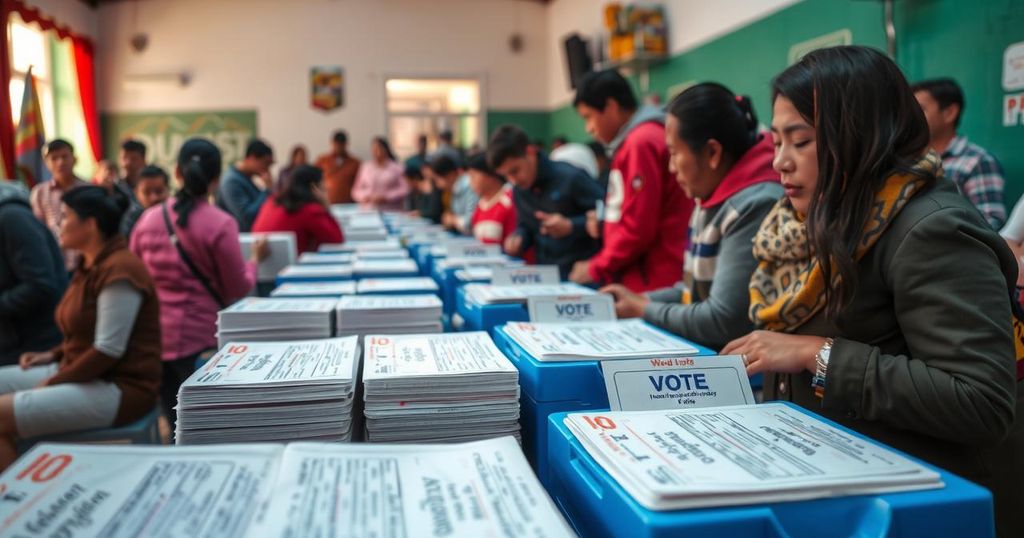Bolivia’s approach to electing its top judicial officials has become a focal point of controversy, raising concerns about the implications for democracy and judicial independence. As the country prepares for its third judicial election, voter apathy and skepticism about the legitimacy of the process are widespread. The situation is further complicated by political maneuvering among leaders, casting doubt on the integrity of the judiciary amid broader regional reforms influenced by Bolivia’s experiences.
Bolivia uniquely conducts elections for its top judicial posts, a practice that has recently come under scrutiny for its implications on democracy and the integrity of the judiciary. As La Paz prepares for a pivotal judicial election, candidates employ creative campaigning tactics despite a ban on campaigning, illustrating the challenges faced by voters confronted with unfamiliar names on lengthy ballots. Critics argue that the current system, which replaced a qualification-based selection process, has led to the politicization of the judiciary, undermining its ability to function as an independent arbiter of justice.
This judicial election marks the third instance in which Bolivians will cast votes for court positions. Past elections have seen significant voter disillusionment reflected in high rates of null and blank ballots, stemming from concerns over transparency and the influence of political elites. As voter apathy persists, the legitimacy of elected judges is questioned, particularly as the system favors party political interests rather than judicial expertise.
Moreover, the broader regional implications of Bolivia’s judicial election practices are becoming evident as Mexico contemplates similar reforms amidst its own contentious judicial overhaul. Nearly all of Bolivia’s political entities grapple with the dilemma of judicial independence versus political influence, highlighted by the evolving dynamics between President Luis Arce and former President Evo Morales.
As tensions mount within the ruling party and electoral timelines shift, the postponement of elections by the Constitutional Court has drawn criticism from the Inter-American Court of Human Rights. With only a partial election occurring now, concerns remain regarding the concentration of power in the judiciary and its impact on Bolivian democracy as a whole.
Bolivia’s distinctive approach to electing judges has gained considerable attention, particularly as it represents a stark departure from traditional models that emphasize judicial qualifications. This system was implemented over a decade ago in an effort to democratize the judiciary, yet it has faced backlash amid allegations of political manipulation and lack of transparency. The discourse around judicial elections continues to evolve, with neighboring nations looking to Bolivia’s experiences as part of their own judicial reforms, raising critical questions about the balance between democracy and judicial independence in the region.
The upcoming judicial elections in Bolivia, an essentially flawed democratic exercise, underscore significant issues surrounding the politicization of the judiciary and voter engagement. As Bolivia prepares to cast votes for a fraction of its top judicial positions, the implications on judicial integrity and regional democracy remain critical discussions. Both Bolivian political leaders and citizens are at a crossroads, where the outcome of these elections could further entrench partisan interests within the judiciary, complicating the pursuit of an independent and impartial legal framework.
Original Source: abcnews.go.com







